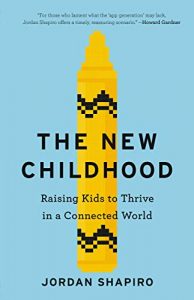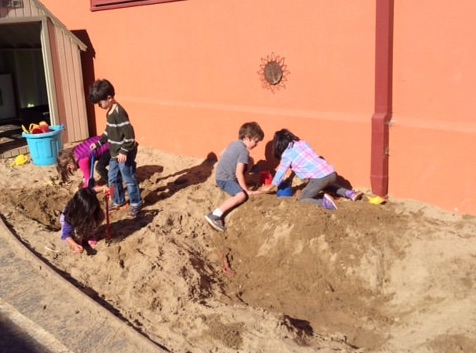
So many of today’s parents complain that their children spend too much time staring at “addictive screens.” According to the grownups, kids never want to do anything else and therefore, they’re losing out on the real joy of childhood. But the statistics tell a different story. On average, today’s kids get roughly the same amount of screen time as their parents did. The only difference is the kind of screen. The previous generation watched cartoons on the television. Now, kids spend most of their time on connected mobile devices like smartphones and tablets.
The distinction is important because it reveals the true nature of parental anxiety. Grownups are disoriented because, at first glance, today’s screen media seems personal and private. When kids are watching YouTube videos or playing video games, it feels like the devices are pulling them away from the family and into an isolated cocoon. But also, in a paradoxical twist, the screens function like portals which deliver kids out of the house, beyond the perfect picket fence, and into a vast public dystopian virtual reality. With digital devices, children isolate themselves to interact with others. They are always alone but also very much together. Digital play detaches them from their immediate surroundings but connects them to faraway places. The relationship between public and private becomes confused. Hence, parents are also confused. They don’t know whether their kids are too detached or too exposed. All they know for sure is that traditional home-life feels out of order.
This anxiety is understandable. But remember that new technologies will always beget new routines.
Consider that images and definitions of family are always changing. The one with which we’re most familiar—with its dinners, sofas, barbecues, and summer vacations—is a unique feature of the Industrial Age. Likewise, the modern home—with its private bedrooms, sprawling kitchens, and wall-mounted flat-screen TVs—is just a tool which was designed to facilitate the routines and habits of the perfect 20th century family.
Still, there is something about home and family that is essential, that transcends the vicissitudes of time. I call it the “hearth,” a universal element of the human experience which was once represented by the Greek god, Hestia, and her Roman counterpart, Vesta. The hearth is what provides us with a sense of stability. It anchors us to something greater than the individual self. It provides a thread which roots us to a shared past.
If the rooms in our houses are like the pulpits and pews on which we perform Industrial Age rituals that honor the hearth, then the family portraits, heirlooms and cherished objects that we display on our mantels are just emblems and talismans—symbolic artifacts which remind us of family’s importance. These are not the things which constitute family values, but rather the tools and totems we use to communicate and experience a sense of grounded-ness. That means grownups need to quit demanding allegiance to old-school idols—the obsolete technologies of family values. Recognize instead, that it’s not family or home-life that needs to be preserved, but rather our connection the primordial hearth.
In a world where everything is always revolutionary, innovative, and reinvented, it feels like there’s little tethering us to the long thread of history. Your kids seem to be connected to everything except the past. That’s because they need a new image of home, something that signifies permanence and durability. So, teach them about antiquity. Use digital tools to share family stories, to celebrate your heritage. It doesn’t even have to be related to your own ancestral origins; any engagement which emphasizes the value of history is better than the current cultural obsession with freshness and novelty.
In my family, we talk a lot about the ancient Greek world—I’ve been reading my kids the mythology and teaching them about Socrates, Plato, and Aristotle from the time they were very little. We played Assassin’s Creed: Odyssey together as soon as it was released. First, the game inspired us to reminisce about reading the Percy Jackson books aloud. Then, it provoked dinner time conversations about Athenian democracy and the Spartan influence on Stoic philosophy. This is the history with which I’m most familiar, so it’s an easy choice for me. Other parents might focus on something else. It doesn’t matter; whatever works for you is fine. You can even strengthen the hearth through legacy entertainment. When three generations enjoy Star Wars games and movies together you may not be building a foundation that reaches back into the annals of history, but you are still setting small tent stakes in the ground.
Excerpted from THE NEW CHILDHOOD Copyright © 2019 by Jordan Shapiro. Used with permission of Little, Brown and Company, New York. All rights reserved.


